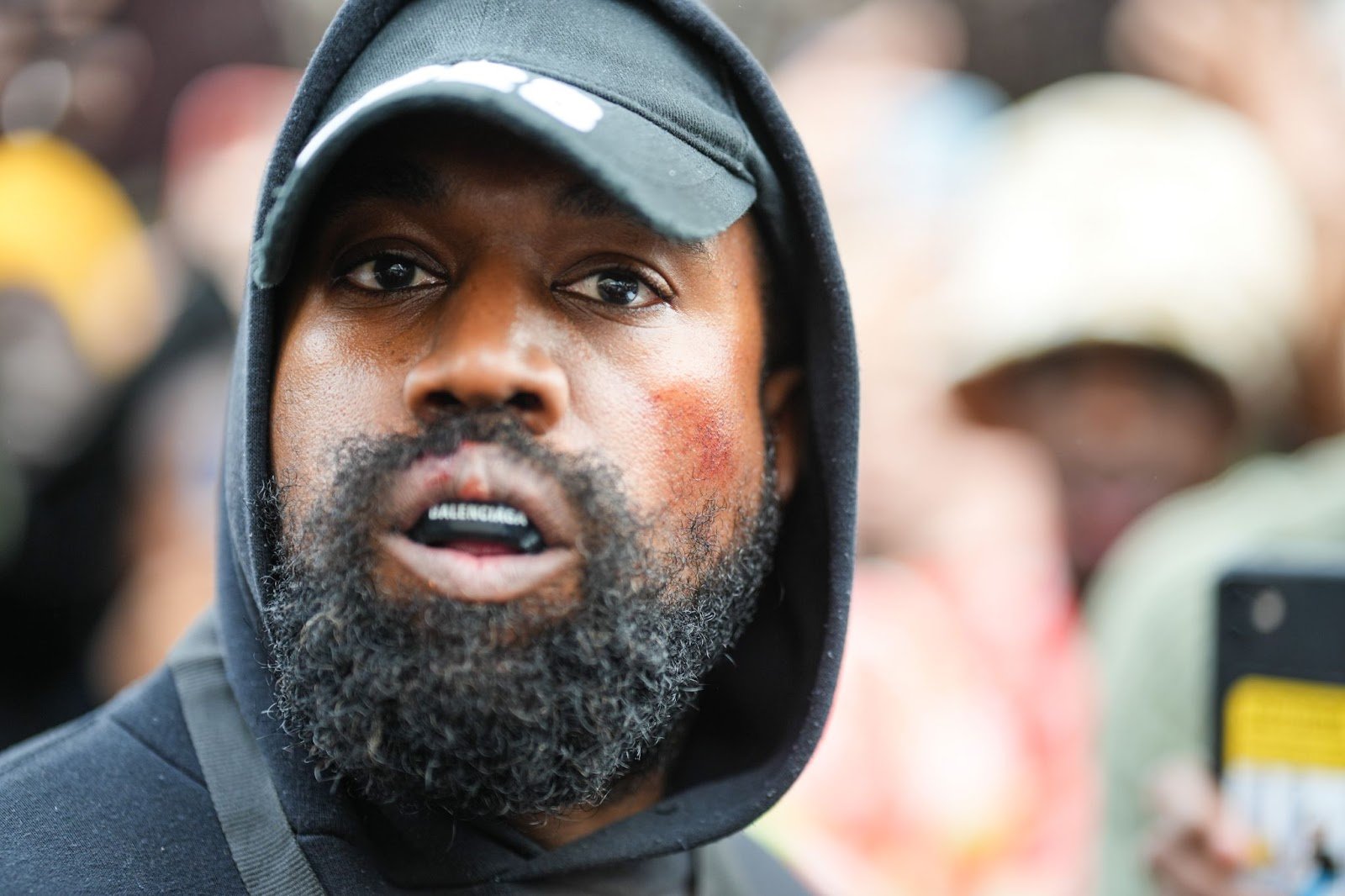The art vs. the artist
Time to go incognito? (Photo: Edward Berthelot/GC Images)
Trigger warning: Sexual violence, racism, and abuse
Experiencing complicated emotions about one’s favorite problematic artists can be pretty common. Take it from me, an avid (ex?) fan of pop punk in its glory days.
When I was 17 and deep into my emo phase, my entire music taste consisted of Brand New, one of the frontrunners of the 2000s emo scene. Nothing resonated with me as much as their angsty songs did, and that seemed to be the case for many in their cult-like following.
Then suddenly, allegations of assault—you know the drill. Other iconic artists aren’t immune to the consequences of their messed-up behavior.
Recent celebrity cancellations: a recap
In the past two weeks alone, there have been controversies left and right about artists who’ve been accused of serious transgressions.
First is a rapper who’s no stranger to controversy, Kanye West. Last week, Ye caught himself in a spree of racism and antisemitism after sporting a “White Lives Matter” t-shirt and stating in a tweet that he would go “death con 3 on Jewish people.”
Next is Nicki Minaj, who was accused of being a #40YearOldBully. Minaj projected her frustration about the Grammys onto Latto—another black female rapper. When Latto refused to support her in calling out the Academy, Minaj opened up a feud by calling her out on Twitter and involving her fans.
Recent news about pop musician Rex Orange County last week also upset many fans. He was charged with six counts of sexual assault due to allegedly assaulting a woman in June. Fans are heartbroken over the allegations, with some burning their merch or removing their tattoos.
Lastly, dating rumors about pop singer Billie Eilish and Jesse Rutherford of The Neighbourhood have sparked concerns over their age gap. Rutherford, 31, and Eilish, 20, were spotted holding hands and were quickly criticized by social media users.
True colors revealed
The internet might circulate these issues like they’re tea, but a deeper look into them shows more serious moral dilemmas. Of course, artists facing allegations of discrimination, abuse, and other horrible acts isn’t anything new. “The canon of art history is filled with artists who were cruel, criminal, exploitative, and predatory,” wrote Ruth Millington for Art UK.
With their controversies usually come discussions of "separating the art from the artist," a long-standing debate on art and morality. “Over the last few years, a lot of info has come out about artists that put them [in] a less than favorable light… Am I alone in losing all joy out of music when the musician creating it is an awful human?” one Reddit user asked.
Coincidentally, around the time that Brand New frontman singer Jesse Lacey was accused of sexual misconduct, I was going through my own experiences of sexual assault and abuse. Yeah, not a great time for me.
The uncomfortable truth is that terrible people can create wonderful pieces of art that speak to many people. It’s one thing to still be able to appreciate their work, and another to continue supporting them moving forward.
Consuming an artist’s work entails a lot of things. Directly supporting their art (e.g. streaming their music, buying their merch) promotes their platform and increases their income.
Art as a form of personal expression is also inextricably linked to the artist’s inner world, and consuming it shows a curiosity for their ideas. This doesn’t necessarily mean that one condones those ideas, though. Postmodernism looks at art as separate from the artist because it’s ultimately up to the consumer to bring new life and interpretation to the work.
In the cancel culture era
As if the discourse isn’t complicated enough on its own, cancel culture isn't making it any easier for fans to decide whether or not they should continue supporting artists who've been accused of problematic behavior. On the internet, we use the word “problematic” lightly, and cancel culture has a tendency to simplify complex issues, discouraging nuance in the process.
How we draw the line between who is worth supporting and who isn’t doesn’t come easily—it’ll always be different for each person.
Personally, I can say that it’s hard to listen to Brand New when they mostly sing about guilt, isolation, and self-destruction and I’ve lived the other side of that darkness. Still, I wouldn’t judge someone who still listens to Brand New today (as long as they don’t condone sexual violence, of course).
The meaning people derive from the art that they enjoy is limitless, and if what they make of an artist’s work brings them comfort, I can’t deny them that.
Todd Chavez from Bojack Horseman once asked, “Isn’t the point of art less what people put into it and more what people get out of it?”
I can’t answer that, but I do know that as consumers of art, we have more power than we realize.


